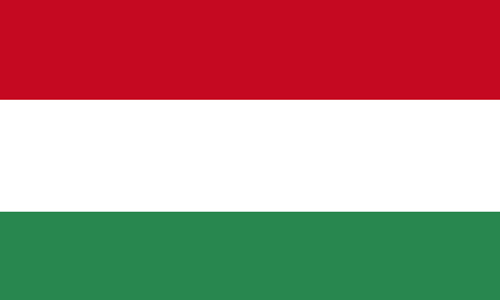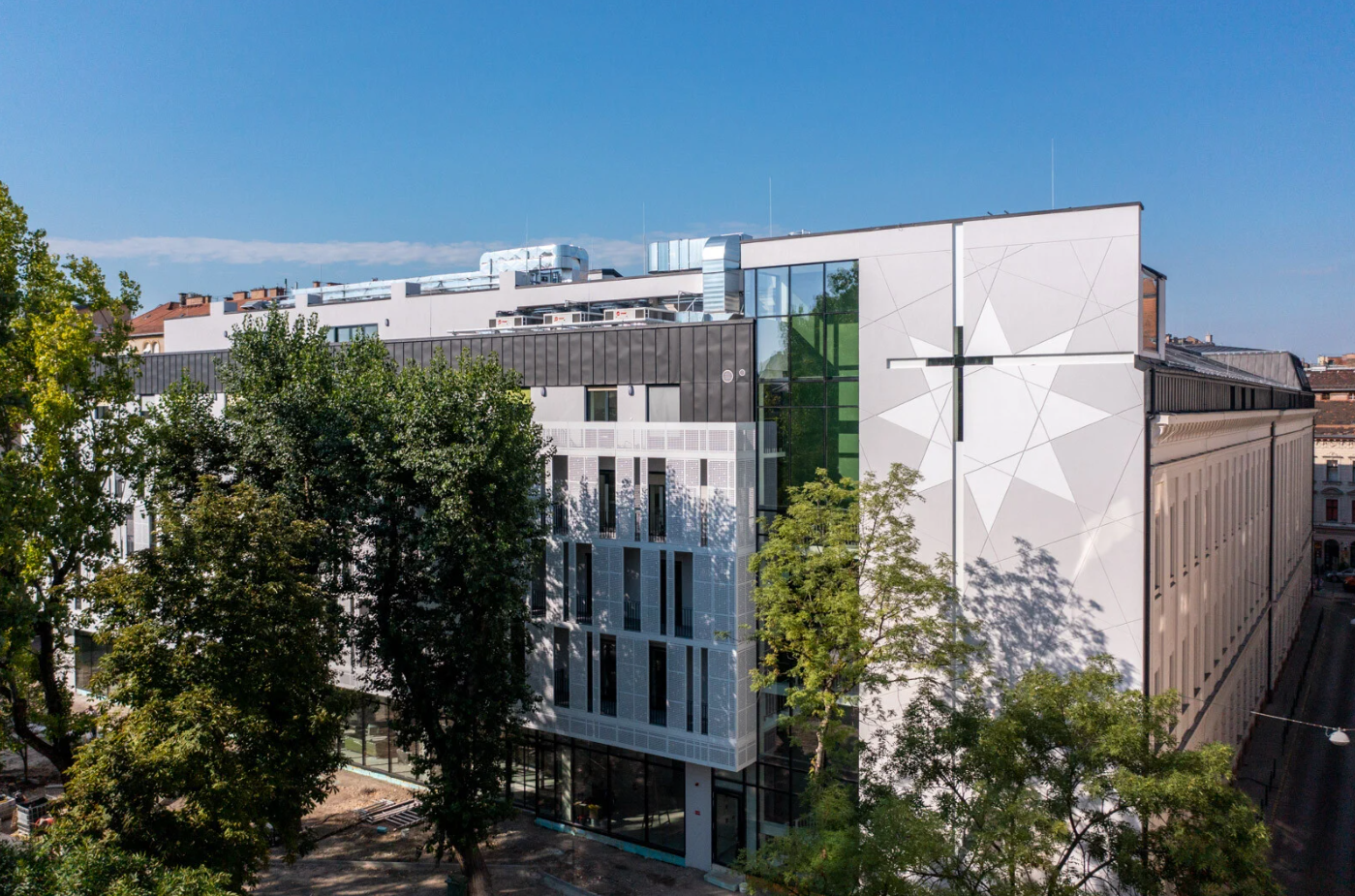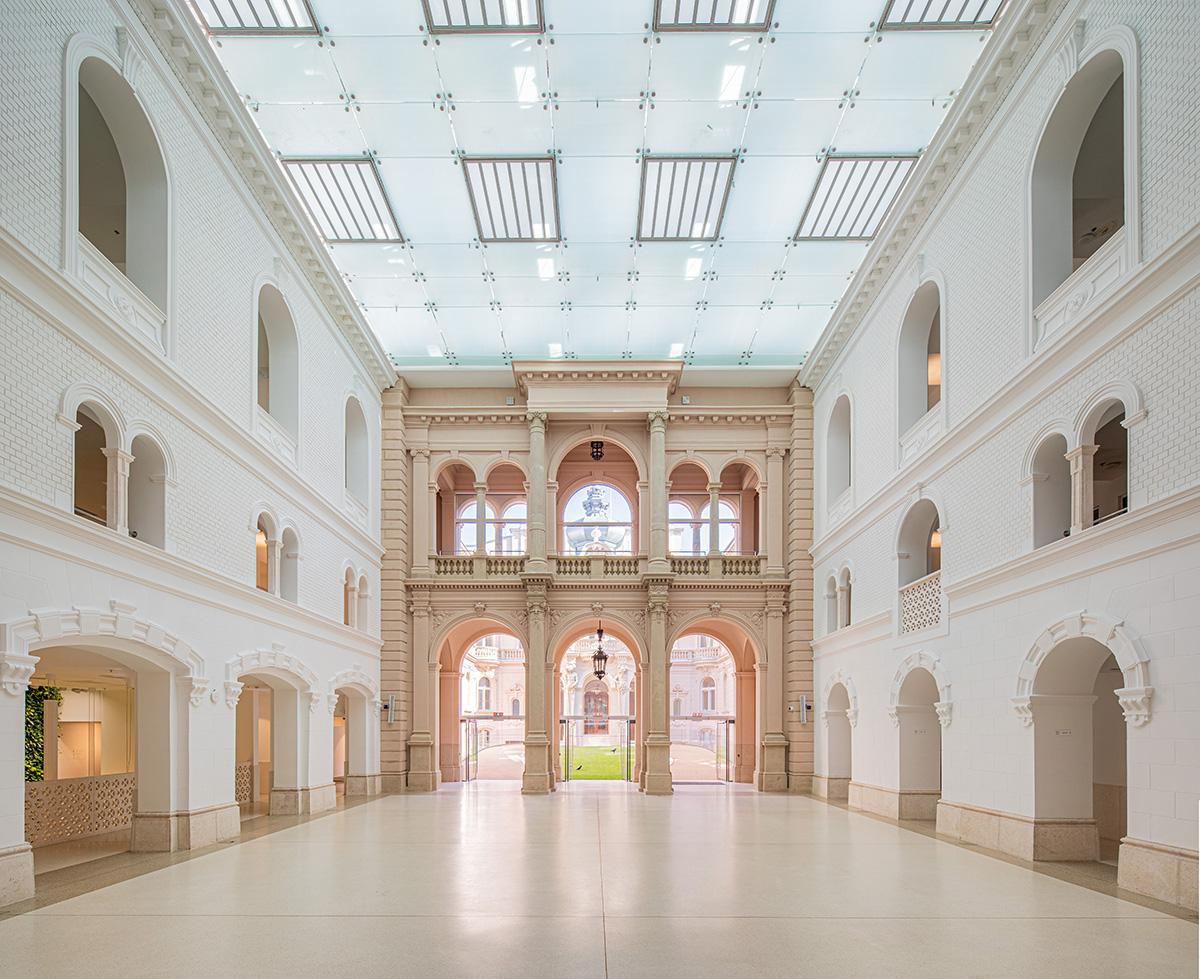Hessky, Regina
Title: Dr habil.
Gender: F
Year of Birth: 1943
Place of Birth (Country): Hungary
Email-address(es): This email address is being protected from spambots. You need JavaScript enabled to view it.
Office Phone Number: 00 36 1 483-2881
Doctoral Studies
Year of Doctoral Defence (PhD / CSc): 1994
Discipline: Linguistics of German language
Title of Thesis: Phraseology of German and Hungarian language
Issuing Institution: Eötvös Loránd University (ELTE) Budapest
MA Studies
Year of Obtaining the MA Degree: 1966
Discipline(s): German and English Language and Literature
Issuing Institution: Eötvös Loránd University (ELTE)
Further Studies and Qualifications
| Institution |
Qualification |
Year of Obtaining the Qualification |
| |
|
|
| |
|
|
| |
|
|
Employment
Current Employer: Károli Gáspár University of the Reformed Church in Hungary
Faculty: Faculty of Humanities
Institute: Institute of German and Netherlandic Studies
Department: Department of German Language and Literature
Current Position(s): Professor
Previous Employer: 1966-2004: Eötvös-Loránd Tudományegyetem, Institute of German Language and Literature
Previous Position Held: Assistant Lecturer, Associate Professor, Professor
Other Previous Employers:
Other Previous Positions Held:
Areas of Research and Teaching
(synchronic) contrastive linguistics (German-Hungarian), phrases and idioms; lexicography
Areas of Teaching: phraseology, lexicology and lexicography, semantics, contrastive linguistics, false friends of Hungarian, German and English
Membership in Research Groups and Projects
Educational Functions, Curriculum Development and Other
Teaching-Related Activities
| Period |
Function or Activity |
| 1989-96 |
Head of Department (ELTE) |
| |
textbook-writing; teaching materials for learners of German and for students of German language and Literature; several vocabularies of German and Hungarian |
| |
|
| |
|
| |
|
Language Skills
| Language |
Level and Kind of Proficiency |
| German |
full professional proficiency |
| English |
limited working proficiency |
| Russian |
elementary proficiency |
| |
|
| |
|
Honours, Distinctions, and Prizes
| Name of Distinction |
Issuing Institution |
Year of Issuing |
| 2008 – Magyar Felsőoktatási Emlékplakett |
|
|
| |
|
|
| |
|
|
Membership in Academic Societies
| Name of Organization |
Function (if any) |
| Gesellschaft Ungarischer Germanisten |
|
| Modern Filológiai Társaság |
|
| Magyarországi Némettanárok Egyesülete |
|
| EUROPHRAS |
|
Guest Professorships and Research Fellowships in Foreign
Institutions
| Period |
Institution |
Activities |
| |
|
|
| |
|
|
| |
|
|
| |
|
|
| |
|
|
Promotorship in Doctoral Studies
Name of
Doctoral Student,
Institution |
Research Topic / Title of Dissertation |
Year of Defence
(if applicable) |
| |
|
|
| |
|
|
| |
|
|
| |
|
|
Opponentship in Doctoral Defences
Name of
Doctoral Student,
Institution |
Title of Dissertation |
Year of Defence |
| |
|
|
| |
|
|
| |
|
|
| |
|
|
List of Publications
Monographs
Phraseologie. Linguistische Grundlagen und kontrastives Modell deutsch-ungarisch. Dissertation. [Manuskript.] Budapest 1985.
dasselbe u.d.T.: Tübingen: Niemeyer 1987. [=Reihe Germanistische Linguistik 77]
Virágnyelven. Durch die Blume. Arbeitsbuch zur deutschen Phraseologie für Fortgeschrittene. Budapest: Nemzeti Tankönyvkiadó 1993.
Edited Books and Journals
[Hrsg.] Ausgewählte Texte zur Didaktik und Methodik des Deutschunterrichts. Anthologie. Budapest: Tankönyvkiadó 1981.
[Mitautorin.] Német Nyelvkönyv VI. [Lehrbuch Deutsch VI.]. Budapest: Tankönyvkiadó 1983.
[Mitautorin] Deutsche Grammatik II-III. Budapest: Tankönyvkiadó 1984.
[Mitheruasgeberin] Német nyelvészeti chrestomatia. [Chrestomatie zur deutschen Sprachwissenschaft]. Budapest: Tankönyvkiadó 1987.
[Mitautorin] Bausteine. Német feladatgyűjtemény [Aufgaben und Übungen]. Budapest: Tankönyvkiadó 1988.
[Hrsg.] Beiträge zur Phraseologie des Ungarischen und des Deutschen. Budapest: Eötvös-Loránd-Universität 1988. [=Budapester Beiträge zur Germanistik 16]
[Mitherausgeberin] Aktuelle Themen I-II. Budapest: Tankönyvkiadó 1989.
[Mitherausgeberin] Offene Fragen - offene Antworten in der Sprachgermanistik. Tübingen: Niemeyer 1992. [=Reihe Germanistische Linguistik 128]
Grundfragen der Phraseologie. In: Vilmos Ágel/Regina Hessky (Hrsg.): Offene Fragen - offene Antworten in der Sprachgermanistik. Tübingen: Niemeyer 1992, 77-93. [=Reihe Germanistische Linguistik 128]
[Mitautorin] Frazeológiai egységek szótári leírásának kérdései. [Fragen der Darstellung phraseologischer Einheiten im Wörterbuch]. In: Filológiai Közlöny 3-4/1992, 103-113.
[Mitherausgeberin] Im Zeichen der ungeteilten Philologie. Festschrift für Professor Dr. sc. Karl Mollay zum 80. Geburtstag. Budapest: Eötvös-Loránd-Universität 1993. [=Budapester Beiträge zur Germanistik Bd. 24]
(Hrsg.): Lexikographie zwischen Theorie und Praxis. Das deutsch-ungarische Handwörterbuch. Tübingen: Niemeyer 1996. [= Lexicographica Series Maior 71]
Das neue deutsch-ungarische Handwörterbuch: Projektvorstellung. In: Hessky, Regina (Hrsg.): Lexikographie zwischen Theorie und Praxis. Das deutsch-ungarische Handwörterbuch. Tübingen: Niemeyer 1996, 5-20. [= Lexicographica Series Maior 71]
[Hrsg.] Német-magyar kéziszótár. [Deutsch-ungarisches Handwörterbuch] Budapest/Szeged: Nemzeti Tankönyvkiadó - Grimm Kiadó 2000.
[főszerk.]: Német-magyar kéziszótár. Budapest: Nemzeti Tankönyvkiadó – Szeged: Grimm Kiadó 2000, 4., bővített, jav. kiadás. Szeged: Grimm 2009.
[társszerk.]: Magyar szólástár. Szólások, helyzetmondatok, közmondások értelmező és fogalomköri szótára. Főszerk. Bárdosi Vilmos. Budapest: Tinta 2003.
– Iker, Bertalan: Német-magyar/Magyar-német tanulószótár. [Deutsch-ungarisches/Ungarisch-deutsches Lernerwörterbuch] Szeged: Grimm 2005, 2. kiadás: 2008.
[főszerk.]: Magyar-német kéziszótár. Budapest: Nemzeti Tankönyvkiadó – Szeged: Grimm Kiadó 2002, 3., jav. kiadás. Szeged: Grimm 2010.
Német-magyar, magyar-német gyerekszótár. Szeged: Grimm 2010.
Chapters in Books
Zur kontrastiven Untersuchung idiomatischer Wendungen. In: János Juhász (Hrsg.): Kontrastive Studien Ungarisch-Deutsch. Budapest: Akadémiai Kiadó 1980, 65-76.
Ein kontrastives Arbeitsmodell - dargestellt an deutsch-ungarischem Material. In: H. Burger/R. Zett (Hrsg.): Aktuelle Probleme der Phraseologie. Bern-Frankfurt a.M-New York-Paris: Lang 1987, 98-108. [=Zürcher Germanistische Studien 9]
- Ettinger, Stefan: Deutsche Redewendungen. Ein Wörter- und Übungsbuch für Fortgeschrittene. Tübingen: Gunter Narr, 1997. [Narr Studienbücher]
Entwicklungen der Phraseologie seit der Mitte des 20. Jahrhunderts. In: Besch, W. / Betten, A. / Reichmann, Oskar/Sonderegger, Stefan (Hrsg.): Sprachgeschichte. Ein Handbuch zur Geschichte der deutschen Sprache und ihrer Erforschung. Zweite, veränderte und erweiterte Auflage. Berlin, New York: de Gruyter 2000, 2101-2106. [= HSK 2, Bd. 2]
Articles in Academic Reviews (Printed and Electronic)
A német ige „vegyértéke”. [Valenz des deutschen Verbs.]. In: Idegen Nyelvek Tanítása. 6/1971, 185-189.
Literatur in der Deutschlehrerausbildung an nicht deutschsprachigen Universitäten. In: Modern Nyelvoktatás. Budapest: TIT 1979, 23-27.
Középiskolai tanárképzés az NSZK-ban. [Lehrerausbildung in der BRD.] In: Pedagógusképzés 1/1980, 103-111.
Überlegungen zum Idiom als Problem der zweisprachigen Lexikographie. In: Acta Linguistica Academiae Scientiarum Hungaricae 1-2/1980, 163-171.
Bericht über die VI. Konferenz der Deutschmethodiker in Ungarn. In: Deutsch als Fremdsprache 6/1981, 366-368.
"Ich habe die Schwindsucht im Geldbeutel" - zur synchronischen Motiviertheit von Phraseologismen. In: Germanistisches Jahrbuch DDR-UVR 1982. Budapest 1982, 51-57.
Sprachpsychologische Erkenntnisse im Dienst der Förderung der Sprechfertigkeit. In: Germanistisches Jahrbuch DDR-UVR 1982. Budapest 1982, 176-189.
A tankönyvbírálat problémáiról - az új gimnáziumi német nyelvkönyvek alapján. [Probleme der Lehrwerkkritik - am Beispiel des neuen Deutschlehrbuchs für das Gymnasium.] In: Nyelvmetodikai Füzetek I. Budapest: ELTE 1982, 62-81.
Probleme des Deutschen als Fremdsprache aus ungarischer Sicht. In: W. Bachofer/H. Fischer (Hrsg.): Ungarn - Deutschland. Studien zur Sprache, Kultur, Geographie und Geschichte. München: Trofenik 1983, 123-134. [=Studia Hungarica 24]
Nyelvpszichológiai szempontok az idegennyelvi beszédkészség fejlesztésében. [Sprachpsychologische Aspekte bei der Entwicklung der Sprechfertigkeit]. In: Modern Nyelvoktatás Budapest: TIT 1983, 151-160.
Eine aktuelle Frage: Phraseologie im FU. In: Germanistisches Jahrbuch DDR-UVR 1984. Budapest 1984, 148-165.
Gleichartigkeit in der ungarischen und deutschen Phraseologie. In: Sprache und Literatur in Wissenschaft und Unterricht. Düsseldorf (56) 1985, 81-87.
Neue Entwicklungstendenzen in der Didaktik des Faches Deutsch als Fremdsprache. In: Deutschunterricht für Ungarn 1/1986, 4-12.
Becsüljük meg a régi mestereket... [Alte Meister sind zu schätzen...] In: Idegen Nyelvek Tanítása 6/1986, 188-189.
Kontrastive phraseologische Untersuchungen, dargestellt am Beispiel Deutsch-Ungarisch. In: Berliner Beiträge zur Hungarologie 1. Berlin-Budapest 1986, 7-16.
Objektives und Subjektives im phraseologischen Vergleich. Zur Struktur und Semantik phraseologischer Vergleiche. In: Germanistisches Jahrbuch DDR-UVR 1987. Budapest 1987, 193-204.
Verbale Phraseologismen: valenzkonform oder nicht? In: Pavica Mrazovič/Wolfgang Teubert (Hrsg.): Valenzen im Kontrast. Ulrich Engel zum 60. Geburtstag. Heidelberg: Groos 1988, 139-149.
Sprach- und kulturspezifische Züge bei phraseologischen Vergleichen. In: G. Gréciano (Hrsg.): Europhras 88. Strasbourg 1989, 135-146.
Ein Plädoyer für Phraseologie im Deutsch als Fremdsprache-Unterricht. In: E. Slembek (Hrsg.): Von Lauten und Leuten. Frankfurt a.M.: Scriptor 1989, 83-94.
Sprachspezifik - Kulturspezifik. Kontrastive Überlegungen zum phraseologischen Vergleich. In: János Szabó/Ferenc Szász (Hrsg.): Theorien, Epochen, Kontakte. Festschrift zum 60. Geburtstag von Prof. Dr. Dr.h.c. Antal Mádl. Budapest: Eötvös-Loránd-Universität 1989. 2 Bde. [=Budapester Beiträge zur Germanistik Bd. 19-20]
Zur Didaktik des Deutschen als Zweitsprache in Ungarn. In: Südostdeutsche Vierteljahresblätter (30) 1/1990, 57-60.
Phraseolexeme als harte Nuß für die zweisprachige Lexikographie. In: Földes, Csaba (Hrsg.): Sprachsystem und Sprachverwendung. Wien: Edition Praesens 1992, 107-124.
Aspekte der Verwendung von Phraseologismen im Unterricht Deutsch als Fremdsprache. In: Fremdsprachen lehren und lernen [FluL] (21) 1992, 159-168.
Grammatik und/oder Sprachwissenschaft in der Lehrerausbildung: Ist das eine Alternative? In: Kohn, János/Wolff, Dieter (Hrsg.): New Tendencies in Curriculum-Development. Neuere Tendenzen in der Curriculum-Entwicklung. Szombathely 1993, 103-111.
Aktuelle Probleme des Fremdsprachenunterrichts in Ungarn. In: De Cillia, Rudolf/Anzengruber, Grete (Hrsg.): Fremd Sprachen Politik in Österreich, Mitteleuropa, Osteuropa. Schulheft 68/1993, 115-122.
Zu einigen Aspekten der zwischensprachlichen Ähnlichkeit. In: Bassola, Péter/Hessky, Regina/Tarnói, László (Hrsg.): Im Zeichen der ungeteilten Philologie. Festschrift für Professor Dr.sc. Karl Mollay zum 80. Geburtstag. Budapest: Eötvös-Loránd-Universität 1993, 127-135. [=Budapester Beiträge zur Germanistik Bd. 24]
Der Sprachvergleich als Hilfe beim Grammatiklernen. In: Deutsch als Fremdsprache (31) 1/1994, 20-25.
Kerettanterv - kipróbálás előtt. [Rahmencurriculum – vor dem „Probelauf”] In: Nyelv Infó (2) 4/1994, 19-21.
Ein Rahmencurriculum für fortgeschrittene jugendliche Lerner. In: Deutschunterricht für Ungarn III/1994, 1-6.
Einige Aspekte der deutsch-ungarischen Zweisprachigkeit oder: Warum zweisprachiger Unterricht für die Minderheit? In: Wild, Katharina (Hrsg.): Begegnung in Pécs/Fünfkirchen. Die Sprache der deutschsprachigen Minderheiten in Europa. Pécs: Janus-Pannonius-Universität 1994, 95-101.
Grammatik und/oder Sprachwissenschaft in der Lehrerausbildung: Ist das eine Alternative? In: Petneki, Katalin/Schmitt, Wolfgang/Szablyár, Anna (Hrsg.): Curriculumevaluation der Deutschlehrerausbildung aus didaktischer Sicht. Dokumentation der Tagung am 16.-17.09.1993 an der Eötvös-Loránd-Universität. Budapest: ELTE Germanistisches Institut, 45-52. [=Budapester Beiträge zur Germanistik Bd. 25]
Wie viele Grammatiken braucht der Mensch? In: Ágel, Vilmos/Brdar-Szabó, Rita (Hrsg.): Grammatik und deutsche Grammatiken. Budapester Grammatiktagung 1993. Tübingen: Niemeyer 1995, 243-246. [=Linguistische Arbeiten 330]
Zum kognitiven Ansatz in der Phraseologie: "Aufgewärmter Kohl oder eine neue Platte"?. In: Harras, Gisela (Hrsg.): Die Ordnung der Wörter. Jahrbuch 1993 des IdS. Berlin-New York: de Gruyter 1995, 289-302.
Die Rolle der großen Verkehrssprachen in Ostmitteleuropa - am Beispiel Ungarn. In: Wodak, Ruth /De Cillia, Rudolf [Hrsg.]: Sprachenpolitik in Mittel- und Osteuropa. Wien: Passagen 1995, 63-74.
Einige Überlegungen zum Verhältnis von Grammatik und Rahmencurriculum. In: Popp, Heidrun (Hrsg.): Deutsch als Fremdsprache. An den Quellen eines Faches. Festschrift für Gerhard Helbig zum 65. Geburtstag. München: iudicium 1996, 707-716.
"Die Spieler - zwei nebeneinander dahinschießende Lokomotiven" - Einige Reflexionen aus linguistischer Sicht. In: Kurdi, Imre/Zalán, Péter (Hrsg.): Die Unzulänglichkeit aller philosophischer Engel. Festschrift für Zsuzsa Széll. Budapest: Eötvös-Loránd-Universität 1996, 253-262. [=Budapester Beiträge zur Germanistik Bd. 28]
Einige Fragen der Vermittlung von Phraseologie im Unterricht Deutsch als Fremdsprache. In: Rainer Wimmer/Franz-Josef Berens (Hrsg.): Wortbildung und Phraseologie. Tübingen: Gunter Narr 1997, 255-260. [=Studien zur deutschen Sprache 9]
Einige phraseodidaktische Überlegungen für den DaF-Unterricht. In: DaF (34) 3/1997, 139-143.
Ungarisch - Deutsch. In: Goebl, H./Nelde, P.H./Starý, Z./Wölck, W. (Hrsg.): Kontaktlinguistik. Contact Linguistics. Linguistique de contact. 2. Halbband. Berlin, New York: de Gruyter 1997, 1723-1731. [= HSK Bd. 14]
Feste Wendungen - ein heißes Eisen? Einige phraseodidaktische Überlegungen für den DaF-Unterricht. In: Deutsch als Fremdsprache (34) 3/1997, 139-143.
Das zweisprachige Wörterbuch. In: Kétnyelvűség a nyelvvizsgáztatásban. Budapest: Eötvös-Loránd-Tudományegyetem Idegennyelvi Továbbképző Központ 1997, 159-164.
DaF aus der Außenperspektive. Ein Diskussionsbeitrag aus der Auslandsgermanistik. In: Deutsch als Fremdsprache (35) 1/1998, 10-14.
Möglichkeiten und Perspektiven bei der Arbeit mit phraseologischen Wörterbüchern. In: Lexicographica 14, 1998, 27-35.
– Bertalan Iker: Informationen bei Phraseologismen im zweisprachigen Wörterbuch. In: Eismann, Wolfgang (Hrsg.): EUROPHRAS 95. Bochum: Brockmeyer 1998, 315-326.
Phraseologie: Vermittlungsinstanz zwischen Sprachsystem und Sprachverwendung. In: Fernandez Bravo, Nicole/Behr, Irmtraud/Rozier, Claire (Hrsg.): Phraseme und typisierte Rede. Tübingen: Stauffenburg 1999, 233-241. [= Eurogermanistik 14]
Phraseologie in der Diskussion. Kritische Würdigung des Ansatzes von Csaba Földes. In: Zeitschrift für Deutsche Philologie (118) 3/1999, 420-429.
Randbemerkungen zum Wörterbuchschreiben: movierte Formen im Deutschen und im Ungarischen. In: Szász, Ferenc/Kurdi, Imre (Hrsg.): Im Dienste der Auslandsgermanistik. Festschrift für Professor Dr. Dr. h.c. Antal Mádl zum 70. Geburtstag. Budapest: Eötvös-Loránd-Universität 1999, 69-86. [=Budapester Beiträge zur Germanistik Bd. 34]
Am Rande des Wörterbuchschreibens: Falsche Freunde des Deutschen und Ungarischen. In: Kulcsár-Szabó, Ernő/Tarnói, László/Tverdota, György (Hrsg.): Berliner Beiträge zur Hungarologie 11, Berlin-Budapest 1999, 143-152.
Sprachkultur und gesellschaftlicher Wandel am Beispiel Ungarns. In: Ehlich, Konrad/Ossner, Jakob/Stammerjohann, Harro (Hrsg.): Hochsprachen in Europa. Entstehung, Geltung, Zukunft. Freiburg: Fillibach 2001, 243-254.
Das euphemistische Idiom - eine Problemskizze. In: Häcki-Buhofer, Annelies/Burger, Harald/Gautier, Laurent (Hrsg.): Phraseologiae Amor. Aspekte europäischer Phraseologie. Hohengehren: Schneider 2001, 163-175.
Marginalien zum deutsch-ungarischen Handwörterbuch. In: Korhonen, Jarmo (Hrsg.): Von der mono- zur bilingualen Lexikografie für das Deutsche. Frankfurt am Main usw.: Lang 2001, 199-211. [=Finnische Beiträge zur Germanistik Bd. 6]
Wie viele Wörterbücher braucht der Mensch? Überlegungen zur Wörterbuchkultur. In: Szigeti, Imre (Hrsg.): Germanistische Linguistik aus dem Ambrosianum. Festschrift für György Hell. Piliscsaba 2001, 9-29.
Játék a szólásokkal. [Spielen mit Redensarten] In: Csatár, Péter/Maitz, Péter/Tronka, Krisztián (Hrsg.): A nyelvtantól a szövegtanig. Tanulmányok Kocsány Piroska tiszteletére. Debrecen 2001, 311-321.
Der Kontakt von Sprachen - eine Herausforderung an die Sprachforschung. In: Barota, Mária/Szatmári, Petra/Tóth, József/Zsigmond, Anikó (Hrsg.): Sprache(n) und Literatur(en) im Kontakt. Konferenz, 25.-26. Oktober 2001. Szombathely 2002, 11-22. [=Acta Germanistica Savariensia VII.]
Vorüberlegungen zu einem Wörterbuch der ungarndeutschen Mundarten. In: Erb, Maria/Knipf, Elisabeth/Orosz, Magdolna/Tarnói, László (Hrsg.): „und Thut ein Gnügen Seinem Ambt”. Festschrift für Karl Manherz zum 60. Geburtstag. Budapest: Eötvös-Loránd-Universität 2002, 83-95. [=Budapester Beiträge zur Germanistik Bd. 39]
Movierung im GWDS. In: Wiegand, Herbert Ernst (Hrsg.): Untersuchungen zur kommerziellen Lexikographie der deutschen Gegenwartssprache I. "Duden. Das große Wörterbuch der deutschen Sprache in zehn Bänden". Tübingen: Niemeyer 2003, 381-386. [= Lexicographica Series Maior 113]
Deutsch als Fremdsprache und 'Auslandsgermanistik'. In: Altmayer, Claus/Forster, Roland (Hrsg.): Deutsch als Fremdsprache: Wissenschaftsanspruch / Teilbereiche / Bezugsdisziplinen. Frankfurt am Main-Berlin-Bern-Bruxelles-New York-Oxford-Wien: Peter Lang 2003, 87-108.
Die deutsch-ungarischen Sprachkontakte als Forschungsfeld – Ergebnisse und Aufgaben. In: Manherz, Karl (Hrsg.): Gedenktagung zu Ehren von Claus Jürgen Hutterer und Karl Mollay am 24. November 2000. Budapest 2003, 26-33. [=Budapester Beiträge zur Germanistik Bd. 38]
Alte und neue Fragen in der zweisprachigen Phraseographie (Deutsch/Ungarisch). In: Lexicographica 19/2003, 46-62.
Sprachkultur und Wörterbuchkultur als Voraussetzung für erfolgreiche Wörterbuchbenutzung. In: Informatologie. Translation Science, (38) Zagreb: 2005, 1-2, 102-106.
Die zweisprachige Lexikografie als Auftraggeberin der kontrastiven Sprachforschung – Grundsätzliches und (sehr) Praktisches. In: Tóth, József (Hrsg.): Sprache(n) und Literatur(en) im Kontakt. Beiträge der internationalen Konferenz 6.-7. November 2003. Wien: Edition Praesens, 2005, 11-20. [=Acta Germanistica Savariensia IX.]
Alte und neue Fragen in der zweisprachigen Phraseographie (Deutsch/Ungarisch). In: Brenner, Koloman/Rada, Roberta (Hrsg.): Praktische Aspekte der Lexikographie. Beiträge des Lexikographischen Workshops am 16.-17. Oktober 2003 an der Eötvös-Loránd-Universität Budapest. Budapest: ELTE Germanistisches Institut, 2005, 98-110. [=Budapester Beiträge zur Germanistik Bd. 48]
Wörterbücher im Aufwind. In: Deutsch revital. Pädagogische Zeitschrift für das ungarndeutsche Bildungswesen. Budapest 2005 (2), H. 2, 8-16.
Das metaphorische Spielfeld Text. In: Fix, Ulla/Lerchner, Gotthard/Schröder, Marianne/Wellmann, Hans (Hrsg.): Zwischen Lexikon und Text. Lexikalische, stilistische und textlinguistische Aspekte. Leipzig: Sächsische Akademie der Wissenschaften, 2005, 47-56. [=Abhandlungen der Sächsischen Akademie der Wissenschaften zu Leipzig. Philologisch-historische Klasse 78, H. 4]
Perspektivwechsel in der Arbeit mit Phraseologie im DaF-Unterricht. In: Jesenšek, Vida/Fabčič, Melanija (Hgg.): Phraseologie kontrastiv und didaktisch. Neue Ansätze in der Fremdsprachenvermittlung. Maribor: Slavistično društvo 2007, 9-16. [=Zora 47]
Bárdosi, Vilmos/Hessky, Regina: Phraseographie des Ungarischen. In: Burger, Harald/Dobrovol’skij, Dmitrij/Kühn, Peter/Norrick, N.R. (Hgg.): Phraseologie.Phraseology. Ein internationales Handbuch der zeitgenössischen Forschung. An International Handbook of Contemporary Research. 2. Hbd., Berlin-New York: de Gruyter, 2007, 1017-1026.
Wo liegt der Hund begraben? Ein Beitrag von der Grenzlinie. In: Jahrbuch der Ungarischen Germanistik 2007. Hrsg. von Ellen Tichy und András Masát. Budapest/Bonn, 2008, 13-17.
Freunde und falsche Freunde: Überlegungen zu einem „marginalen” Phänomen. In: Szatmári, Petra / Dóra Takács (Hrsg.): „…mit den beiden Lungenflügeln atmen”. Zu Ehren von János Kohn. München: Lincom Europa 2008, 153-162.
Identifizierung, Abgrenzung, Plazierung … Ein Kurzbericht aus dem Projekt „Wörterbuch der ungarndeutschen Mundarten”. In: Brdar-Szabó, Rita/Péteri, Attila/V.Rada, Roberta/Uzonyi, Pál (Hrsg.): Deutsch – grenzenlos. Festschrift für Elisabeth Knipf zum 60. Geburtstag. Budapest: ELTE Germanistisches Institut 2012, 164-176.
Conference Proceedings (Printed and Electronic)
Adressatenspezifik - Was ist das? Versuch einer Konkretisierung. In: Martin Löschmann (Hrsg.): Lehr- und Lernmittel für Deutsch als Fremdsprache. Theorie und Praxis 30.10.-1.11. 1990 [Konferenzband]. Leipzig: Herder Institut Universität Leipzig 1990, 31-40.
Zu einigen Aspekten der Ähnlichkeit phraseologischer Subsysteme. In: Frazeológia vo vzdelávaní, vede a kultúre. Phraseology in Education, Science and Culture. Zborník materiálov z II. medzinárodnej frazeologickej konferencie. Nitra 14.-16. september 1992. Vysoká skola pedagogická v Nitre. Fakulta humanitných vied katedra slovenského jazyka 1993, 161-168.
Interkulturelle Ansätze in der Sprachgermanistik: Rückblick und Perspektiven – oder: Sind wir auf der Suche nach einer neuen Identität:? In: Hess-Lüttich, Ernest W. B. (gemeinsam mit A. Czeglédy und U. Langanke): Deutsch im interkulturellen Begegnungsraum Ostmitteleuropa. Frankfurt/Main, Berlin usw.: Peter Lang 2010, 365- 375. [= Cross Cultural Communication 19]
Book Reviews
Transzformációs grammatika az iskolai nyelvoktatásban. [Transformations¬grammatik im schulischen Unterricht. In: Idegen Nyelvek Tanitása. 2/1975, 63-65.
J. Alan Pfeffer: Grunddeutsch. In: Germanistik 1/1977, 62-62.
A.D. Wilkins: Linguistik im Sprachunterricht. In: Germanistik 3/1977, 660-660.
Hans Strohner: Spracherwerb. In: Acta Linguistica Academiae Scientiarum Hungaricae 1-2/1978, 277-277.
Walter Apelt: Positionen und Probleme der Fremdsprachenpsychologie. In: Germanistik 2/1978, 277-277.
Florian Coulmas: Rezeptives Sprachverhalten. In: Germanistik 4/1978, 1000-1000.
Marija Orlovic-Schwarzwald: Zum Gastarbeiterdeutsch jugoslawischer Arbeiter im Rhein-Main-Gebiet. In: Germanistik 3-4/1980, 476-476.
Walter N. Mair / Helmut Meter: Fremdsprachenunterricht - wozu? In: Germanistik 4/1982, 613-613.
Henning Wode: Learning a second language 1. In: Germanistik 4/1982, 619-620.
Neu auf dem Büchermarkt: "Ein Wort gibt das andere". In: Deutschunterricht für Ungarn. 1/1988, 21-25.
K.-E. Sommerfeldt-W. Spiewok (Hrsg.): Zum Verhältnis von Lexik und Grammatik. Enzyklopädie, Leipzig 1989 [=Linguistische Studien]. In: Acta Linguistica Hungarica 40, 1990-91, 1-5.
Ein weißer Fleck weniger. In: Finnisch-ugrische Forschungen 53, 1996, 273-280.
Korhonen, Jarmo: Studien zur Phraseologie des Deutschen und des Finnischen I.-II. Bochum: Brockmeyer 1995, 1996. [=Studien zur Phraseologie und Parömiologie 7., 10]. In: Jahrbuch der ungarischen Germanistik 1997, 262-265.
[Rez.] Wiegand, H.E.: Wörterbuchforschung. Untersuchungen zur Wörterbuchbenutzung, zur Theorie, Geschichte, Kritik und Automatisierung der Lexikographie. 1. Teilband. Berlin; New York: de Gruyter 1998. In: Jahrbuch der ungarischen Germanistik 1999, 246-250.
[Rez.] Ulrich Ammon u.a. (Hg.): Variantenwörterbuch des Deutschen. […] In: Deutsch als Fremdsprache (43), 2006, H. 2, 115-116.
Translations
Creative Writing
Films and Multimedia (Digital Textbooks, Multimedia Creations etc.)
Discography
Organisation of Conferences
Academic and public Appearances (Live and Electronic)




